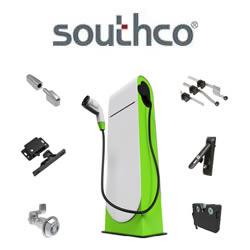African Legislators Meet to Discuss Climate Actions
Last month, nineteen national legislators from thirteen African and European countries met in Kenya to discuss how to take action on climate challenges while ensuring that everyone has access to energy.
Ol Tukai Lodge, Kenya, December 2006
Last month, nineteen national legislators from thirteen African and European countries met in Kenya to discuss how to take action on climate challenges while ensuring that everyone has access to energy. It was the first time that African legislators from so many countries have come together to discuss how to learn from each other. Using an innovative format of a parliamentary hearing, legislators were able to hear experiences from Ghana to Uganda.
The e-Parliament, a relatively young NGO that facilitates communication and exchange of ideas between legislators, organised the event with support from the World Future Council in order to accelerate action on climate change and energy in Africa.
While a wide range of policy ideas and approaches were discussed during the event, energy efficiency was singled out by experts as the most affordable source of additional energy in developing countries. Thus, energy efficiency grabbed particular attention and generated a lot of enthusiasm among the participating legislators.
The importance of energy efficiency was the focus of several expert presentations, including those made by Dr. Marianne Moscoso-Osterkorn from REEEP, Dr. Alfred Ofosu-Ahenkorah from the Ghana Energy Commission, and by Paul Kirai from the Industrial Energy Efficiency Project of the Global Environment Facility (GEF) and the Kenyan Association of Manufacturers (KAM). One specific policy example that generated particularly strong interest was the energy efficiency labelling system for electric appliances being pioneered by Ghana with support from REEEP.
Few African countries have labelling systems for energy efficiency and citizens therefore have no way of knowing, when purchasing an appliance, how the energy costs compare with those of similar machines. Research has shown that some of the most energy-efficient appliances can also be among the cheapest to buy. In Ghana, the labelling system began with air-conditioners, which are a major consumer of energy in a number of countries. The new appliance label rates each machine by a star system, it includes the appliance's energy consumption in terms of kilowatt-hours, and it estimates the money consumers could save depending on the machine's efficiency.
The Ghanaian Labelling scheme has shown that efficiency labels can push inefficient appliances out of the market. "The removal of the least efficient air conditioners from the Ghanaian market will save significant amounts of energy" says Dr. Ofosu-Ahenkorah. It will also, he says, reduce growing dependence on imported energy and reduce cost of electricity for consumers. The scheme will soon be extended to refrigerators and other appliances.
In the course of the discussion, it became clear that legislators from other African countries might be able to replicate the energy label, perhaps in the long run spreading a labelling scheme right across the continent. There was great interest among the participating legislators to learn from Ghana and develop similar schemes in their own countries. Hearing about the success of the Ghanaian experience reassured legislators that labels may effectively encourage efficiency, free up additional energy capacity, and push inefficient appliances out of the market.
Several Kenyan MPs participating in the hearing reported that a new Energy Bill would be before Parliament within a few days, and thought that this idea could be introduced into the debate. Participating legislators from South Africa, Uganda and Tanzania also expressed interest in replicating the scheme in their own countries, while drawing on support from the e-Parliament and REEEP, as well as from the experts involved in developing the Ghanaian scheme.
The e-Parliament energy hearing highlighted the need among parliamentarians, particularly in developing countries, to have access to good policy ideas and leading experts from around the world. Parliamentarians can benefit greatly from activities such as e-Parliament hearings, where successful policies like the Ghanaian labelling scheme can be discussed in more detail, and advice can be provided by leading experts in the field on how to replicate those successes.
Parliamentarians require ongoing support from organisations such as the e-Parliament, The World Future Council and the REEEP to ensure that the enthusiasm and momentum generated by events like the Ol Tukai hearing are translated directly into policy action. Therefore, the e-Parliament is committed to facilitating ongoing connections between parliamentarians and experts.
The organisations that presented at the hearing - such as the World Bank, UNDP, UNEP, REEEP, the World Future Council, AFREPREN/FWD, the Mali Folkcentre, the GEF-KAM Industrial Efficiency Project and the Ghana Energy Commission - are among those which can provide valuable ongoing advice to legislators. It is vital to ensure that connections between these groups and the legislators are maintained and that the enthusiasm generated at the hearing is gradually translated into policy action in national parliaments.
The e-Parliament is planning a series of hearings and conference calls between legislators on energy policy, please visit www.e-parl.net for more details, or contact info@e-parl.net. The World Future Council is currently conducting a two-year campaign on climate change focusing on the global deployment of renewable energy; please visit www.worldfuturecouncil.org for more information.
Featured Product

Southco Inc. - POWER UP YOUR CHARGING DESIGN
With engineered access solutions for electric vehicle charging equipment. Southco's engineered access hardware, including locks, latches and hinges can help Electric Vehicle (EV) charging manufactures to achieve high standards of equipment performance, usability and security, providing a seamless charging experience for drivers.
